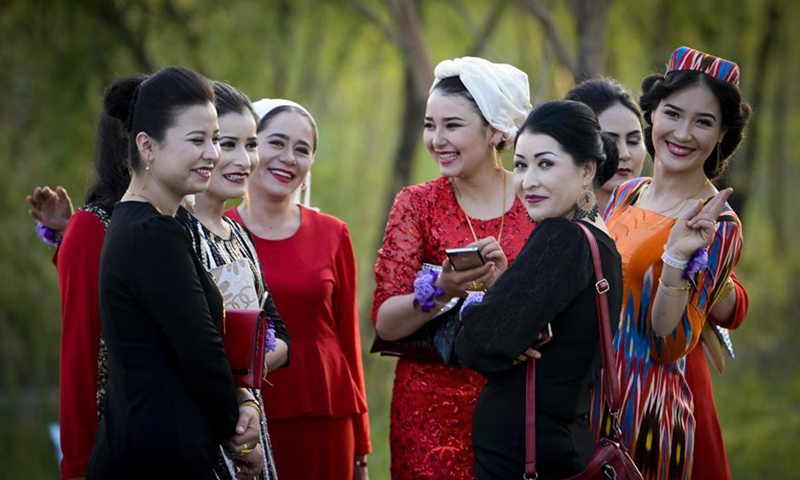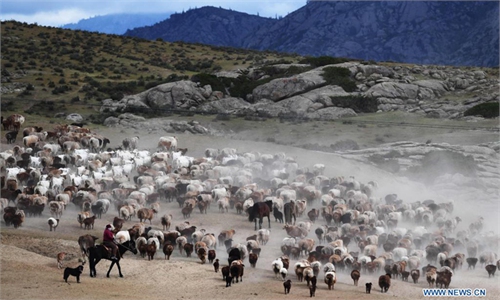Xinjiang govt explains why some Xinjiang people overseas cannot reach their relatives in the region

Residents participate in a wedding ceremony at a scenic spot by Ili River in Yining of northwest China's Xinjiang Uygur Autonomous Region, May 5, 2017.Photo:Xinhua
The regional government of Northwest China's Xinjiang Uygur Autonomous Region explained on Friday why some Xinjiang people overseas claim they cannot reach their family members in the region, and also urged anti-China forces in Western countries to stop playing such "stupid and boring tricks" of fabricating lies to smear Xinjiang.
Elijian Anayit, spokesperson for the Xinjiang regional government, listed four reasons, one being that overseas personnel participate in terrorist organizations such as the East Turkistan Islamic Movement (ETIM), so their relatives are reluctant to contact them.
The second is that their relatives were arrested after committing criminal acts, such as murder, rape and robbery. It could also be a rumor from those Xinjiang people in other countries, who are poisoned by the "three forces" of terrorism, extremism and separatism; and the last possibility could be their relatives have changed numbers, said the spokesperson, urging those people to contact Chinese embassies in those countries, and the Xinjiang regional government will help.
Xu Guixiang, another spokesperson of the Xinjiang government, said that normal connections between relatives are guaranteed and run smoothly. The regional government provides video exchange program for Xinjiang people who live in other countries such as Turkey and Kazakhstan, to give them space for interaction, and the program is widely hailed, said Xu.
On the Anti-Foreign Sanctions Law passed recently, Xu said that based on wrong information, some Western countries imposed sanctions on Xinjiang officials, government departments and companies, which is bullying and lacks legal basis. Since Western countries can sanction Xinjiang, why can't we counter-sanction, asked Xu, noting that the law provides them more legal basis for counter-sanctions.
Xu said that there are growing number of rational voices in international society who support Xinjiang. More than 1,460 people, including 78 politicians who visited Xinjiang since 2018, have voiced support to clear Xinjiang's name, said Xu.
Rumormongers in the West stand in the opposite side of international society, said Xu, noting that the "genocide" claim needs rigorous legal procedures and evidence to define, not by some countries, organizations, and individual's lies.
"Anti-China forces in the West should stop playing such stupid and boring tricks. They should take off their colored glasses to see the truth in Xinjiang, and think why Xinjiang's policies work," Xu noted.

